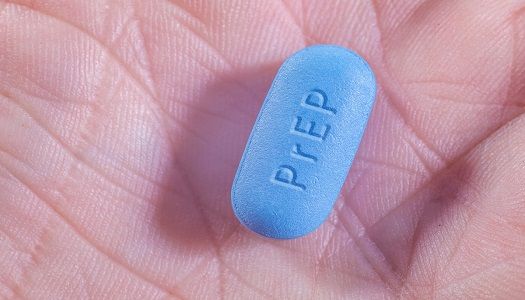Gay Men Might Have Too Much Faith in HIV Preventive
Have HIV treatment advances may high-risk people less cautious?

Although pharmacological approaches to HIV prevention and treatment have come a long way in recent years, that shouldn’t cause people to ease up on their own protective measures. However, that’s what researchers from the Department of Psychology at the University of Connecticut have found is happening.
Surveys were conducted at a gay pride event in Atlanta, Georgia four times from 1997 to 2015. A total of 1,831 men were surveyed on their sexual behaviors and experiences. It appears that men who have sex (MSM) with men are doing so with more partners and having more condomless anal sex.
Pre-exposure prophylaxis (PrEP) was a game-changer when the US Food and Drug Administration (FDA) approved it in 2012. The drug, emtricitabine/tenofovir disoproxil fumarate (Truvada/Gilead Sciences), reduces the risk of HIV among high-risk uninfected people. MSM is one group the Centers for Disease Control and Prevention (CDC) recommends takes the daily pill.
But are MSM relying too heavily on the preventive drug? Participants answered nine items using a four-point scale (one = strongly agree; four = strongly disagree). One such item was, “New AIDS treatments make it easier to relax about unsafe sex.” The surveys were conducted in 1997, 2005, 2006, and 2015; so PrEP was only an option during the most recent survey.
Condomless anal sex among men without HIV and those who did not know their status rose between 1997 and 2015 (43% and 61%, respectively). There was also an increase in those who had multiple sexual partners between the two years (9% and 33%, respectively).

Perhaps what’s even more alarming is that these trends were also found among men who knew that they were HIV-positive. Condomless anal sex increased from 1997 to 2015 (25% and 67%, respectively). Of these men, 52% reported having unprotected sex with two or more partners within six months in 2015—a statistic that was only 9% in 1997.
“The current study adds to the mounting evidence that substantial changes have occurred in community-held beliefs that condomless anal sex is safer in the era of HIV treatment as prevention,” lead author, Seth Kalichman, PhD, said in a news release.
To put these results into perspective, condoms were used about eight out of 10 (82%) sexual intercourses in 1997. This number significantly dropped to less than one in two (47%) sexual intercourses.
One thing that many of the survey participants had in common—whether they were HIV-positive or haven’t been tested—was that they had an increased belief that antiretroviral therapy (ART) prevents HIV, making unprotected sex safe. This view was reflective of public health messaging. The men also believed that having sex with someone with an undetectable blood plasma viral load put them at much lower risk of contracting HIV.
So while it seems that MSM are taking in information on HIV, it’s giving them a false comfort that they’re not at as high of a risk as they are—which could result in risky sexual behavior.
The study, “Diminishing Perceived Threat of AIDS and Increasing Sexual Risks of HIV Among Men Who Have Sex with Men, 1997-2015,” was published in the journal Archives of Sexual Behavior. The news release was provided by Springer.
Related Coverage:
HIV Treatment Could Be to Blame for More Syphilis Cases
Researchers Take Snapshot of Transgender Women with HIV
PrEP Stigma and Uncertainty May Be Hindering Use of the HIV Preventive